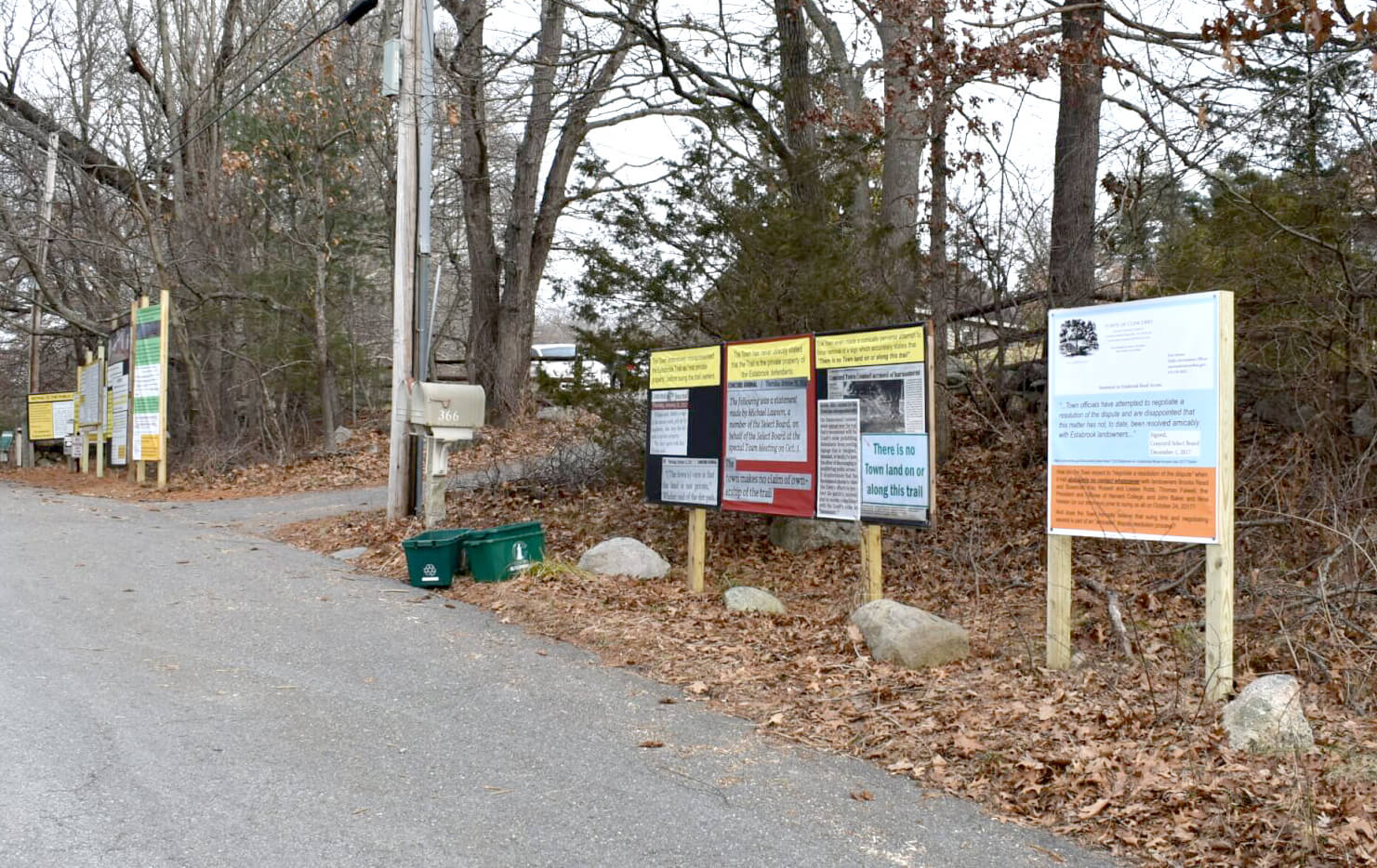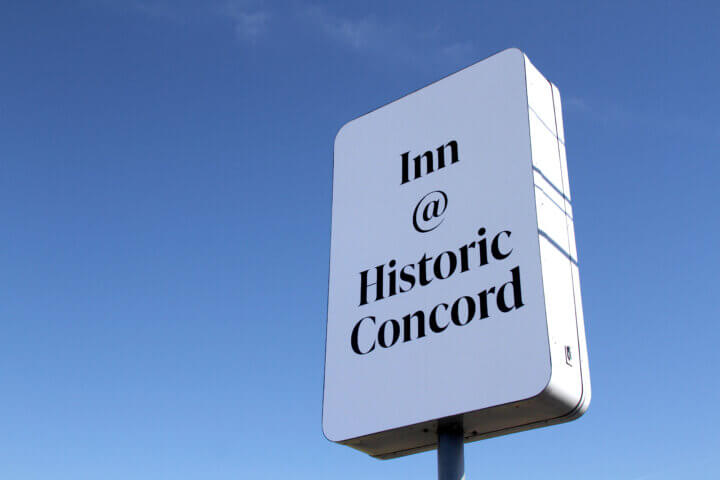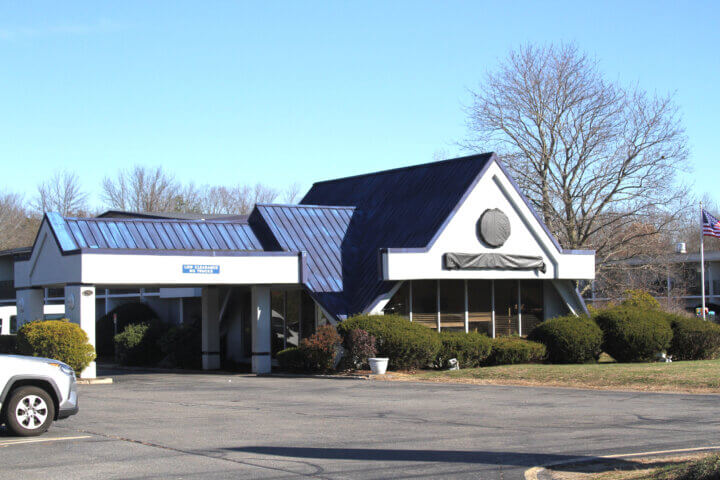By Erin Tiernan — Erin@concordbridge.org
The wooded trail that meets the pavement at the end of Estabrook Road is open to all, the state’s high court ruled on Monday — marking the second rejection by a Massachusetts court of a bid by nearby Concord homeowners to block access to the path the public has enjoyed since Colonial times.
Concord has spent at least $1.6 million since 2017 to protect the public’s right to use the trail in an escalating battle with neighboring property owners determined to keep people off the land they consider private.
Over the years, neighbors have erected warning signs and locked gates to discourage hikers from entering the woods. Monday’s ruling upholds an earlier Land Court decision finding those activities were illegal.
“The Town is pleased that the Appeals Court affirmed the Land Court’s careful decision, and preserved the public’s rights to access Estabrook Road, a cherished historic and recreational resource,” Concord Communication Manager Donna McIntosh said in a Tuesday statement.
“Both the trial and appeals courts gave this case a full hearing and confirmed that the facts and the law support the Town’s consistent position that Estabrook Road was established as a public way, and that the public retains the access rights they have enjoyed for decades, if not centuries.”
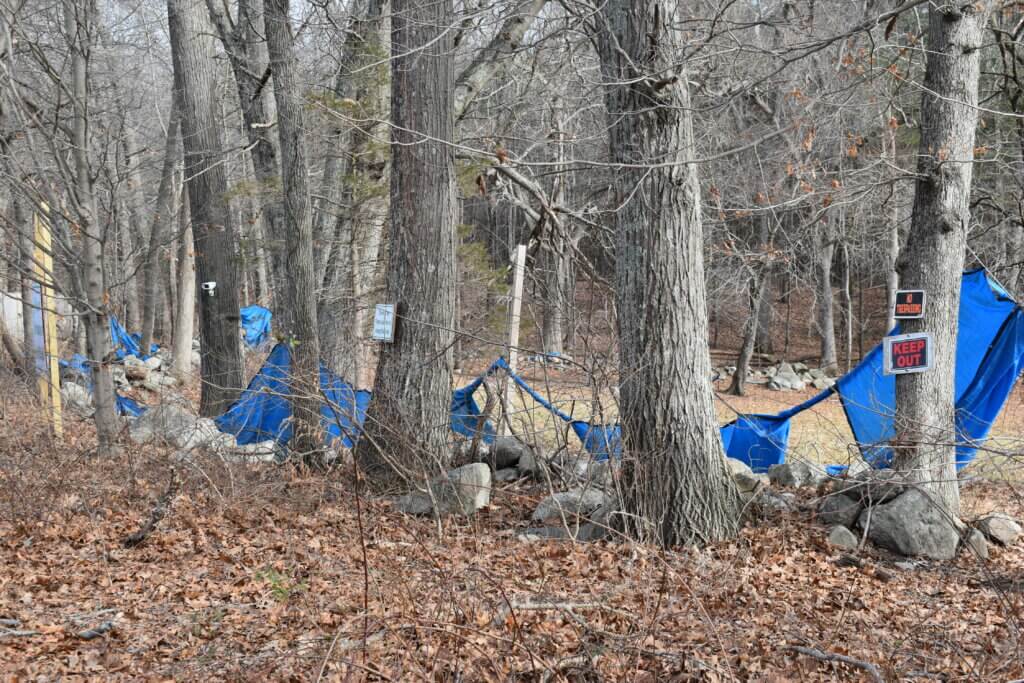
Not ready to give up the fight
Property owners, however, said through their lawyer on Monday that they weren’t ready to give up the fight immediately.
“The landowners are considering pursuing further appellate review,” attorney Gwen Nolan King told The Concord Bridge.
According to state law, neighbors have three weeks to file that appeal, which can be no longer than 10 pages and “should be based on substantial reasons affecting the public interest or the interests of justice.”
Select Board Chair Mary Hartman told The Bridge she finds the ongoing conflict “unfortunate” and urged neighboring landowners, including Harvard University and the Pippin Tree Land Trust, to drop their appeals.
“We’ve spent years — we’ve spent over a million dollars defending the town’s right to use that as a public way,” Hartman said. “I hope that the abutters take this as the law of the land and agree to abide by the decision of the court and be good citizens.”
A historic problem
The legal battle hinges on a 1932 decision by a now-defunct governing body, the Middlesex County Commission. The body granted Concord a “discontinuance” in maintaining the road, reclassifying it as a “private way,” court documents state.
Property owners, in their appeal of the earlier Land Court finding, argued that the unpaved section of Estabrook Road was never a public way even before that 1932 county commissioners’ decision and that even if it were, the public’s rights were terminated when Concord asked to discontinue its maintenance.
The court relied in part on “contemporaneous documents and writings” of Henry David Thoreau and Ralph Waldo Emerson’s daughter as proof the road had historically operated publicly.
Thoreau wrote about Estabrook Road in his 1850s journals, the 22-page decision notes, and described his interactions with individuals he met on or near the road.
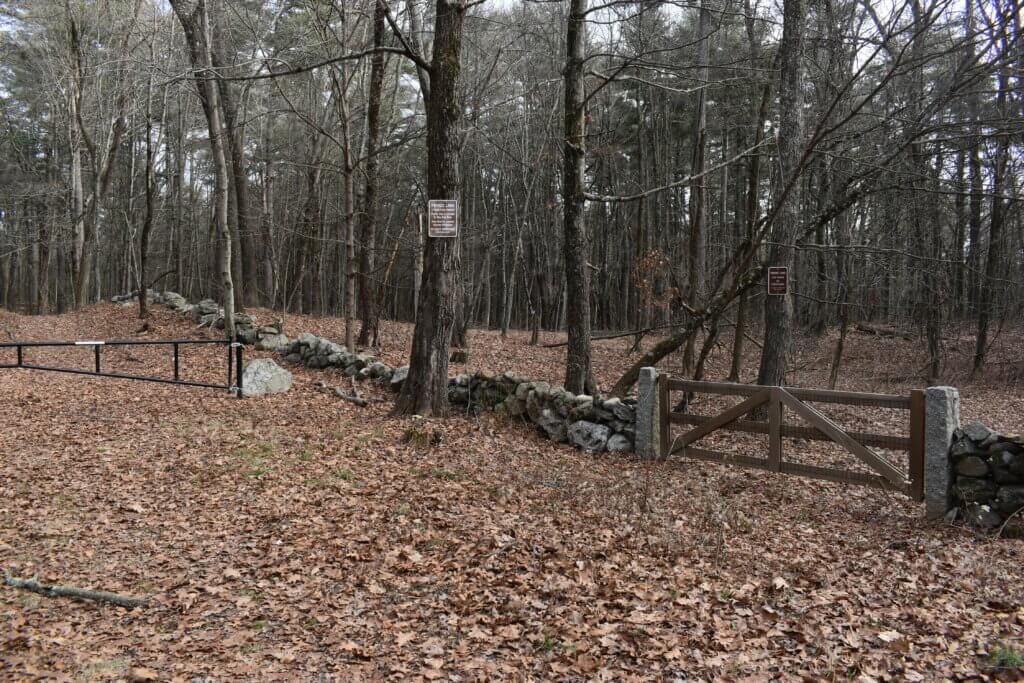
“The town’s expert historical archaeologist relied on those writings to conclude that Estabrook Road was used for such things as travel, berrying, collecting nuts, and logging,” justices wrote. “The daughter of Ralph Waldo Emerson described a carriage ride along Estabrook Road in 1866 and a picnic she shared with others in the area in October 1886.”
The ruling also references an 1897 Massachusetts travel guide that lists going “through the woods” and by the lime quarry on Estabrook Road as a “favorite summer” drive.
The court concluded that Concord sought to protect the town from any liability for injuries suffered on a road it no longer wanted to maintain — not to relinquish public access to the wooded path.
The court also noted that in Massachusetts, towns have to vote to formally abandon a road — and Concord Town Meeting never did so.

Read the full ruling here:
n23P0310

